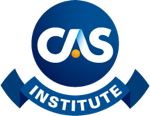April 27, 2017
The CAS Institute has released the learning objectives for its Predictive Modeling – Methods and Techniques assessment requirement for the Certified Specialist in Predictive Analytics (CSPA) credential. This third assessment is organized by the structure of a project and will utilize a technology platform that will allow the candidates to write code against provided datasets.
While there are no specific prerequisites for the Predictive Modeling – Methods and Techniques exam, test takers are expected to have a working knowledge of basic statistics (distributions, hypothesis tests, confidence intervals, maximum likelihood), a working knowledge of the basics of linear models (linear regression and principal components analysis, specifically) and some basic knowledge of R.
Learning objectives for the first and second CSPA assessments have also been updated on the iCAS website. The first requirement in the CSPA assessments, Property and Casualty Insurance Fundamentals was released in October. Offered online with optional supplemental written materials, this course is administered by The Institutes and culminates with a multiple choice exam offered at a Prometrics testing center. CAS Fellows and Associates, as well as candidates who have successfully completed CAS Online Courses 1 and 2 and have passed CAS Exam 5, can receive waivers for this requirement. The waiver form is available at The CAS Institute website.
The second requirement, Data Concepts and Visualization, will be released in three parts. The first part, already available, is offered as an online course with an optional textbook, and is administered by The Institutes. The rest of the course, scheduled to be released in late May or early June, will include the second half of the online course as well as self-study materials from three or four additional outside resources. The online course will include practice exam questions drawn from the online materials; the multiple choice exam, offered at Prometrics testing centers beginning mid-October 2017, will include the material from the additional outside resources as well.
The last requirement for the CSPA credential will be a Case Study project. Candidates will apply the knowledge they have gained in the first three courses to solve a randomly assigned business problem. They will have two months to complete the project.
Practitioners who have five or more years of experience in the field are encouraged to apply for the CSPA credential through the Experienced Practitioner Pathway. This option for earning the credential is scheduled to close November 30, 2017.


